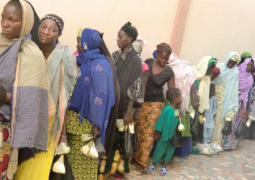
Growth in the agriculture sector over the past three years is expected to slow down due to variable weather conditions across the country, the minister of Finance and Economic Affairs has said.
Mambury Njie made this revelation last Friday while presenting the 2012 budget statement and economic policy of the
He told deputies that inflation has come down to 4.1 percent as at end-September 2012, and is projected to end the year below 5 percent.
“The government’s fiscal position has weakened in recent years marked by significant drop in government revenues as a ratio to GDP, contributing to the tight resource constraint,” he said.
The shortfalls in revenue, he explained, have led to large fiscal deficits, which have been financed mostly by costly domestic borrowing through the Poverty Reduction Strategy Paper II (PRSP II) implementation.
The minister of Finance and Economic Affairs also told deputies that under these challenges, the government of the
The PAGE is the
According to Finance minister Njie, agriculture is the most pro-poor sector in the country’s economy, accounting for over 70 percent of employment in 2010.
“The agriculture sector is responsible for generating farmers’ incomes, improving food security, increasing foreign exchange earnings and boosting tax revenue. It is also the country’s main source of income and acts as a catalyst in reducing poverty,” he stated.
However, he noted that the sector has faced a lot of challenges over the years, and has yet to reach its full potential; as a result, the
“The government’s vision for the agriculture sector is to transform the
On tourism, the minister of Finance and Economic Affairs told deputies that tourism is a key driver of the economy and the country’s most significant earner of foreign exchange as it contributed 14.7 percent of GDP in 2009 and 12 percent of the
Tourism, he said, is one of the country’s main sources of employment, providing more than 16, 000 formal and informal jobs.
He added that in its drive to increase employment, the country plans to exploit the potential inherent in linking tourism to agriculture and natural resources sector, to industry, and to the arts and culture.
Finance minister Njie also stated that government is endeavoring to create new opportunities for businesses, and to help businesses become more efficient; the government will continue to support the development of information and communication technology and will continue to seek to reduce communication costs, according to the minister.
He also noted that to compete and maintain the country’s presence in the global markets, government will boost the human capital endowments of its labour force, whose citizens, he said, need both access to new knowledge and continued training in new processes and the operation of the latest technologies.




